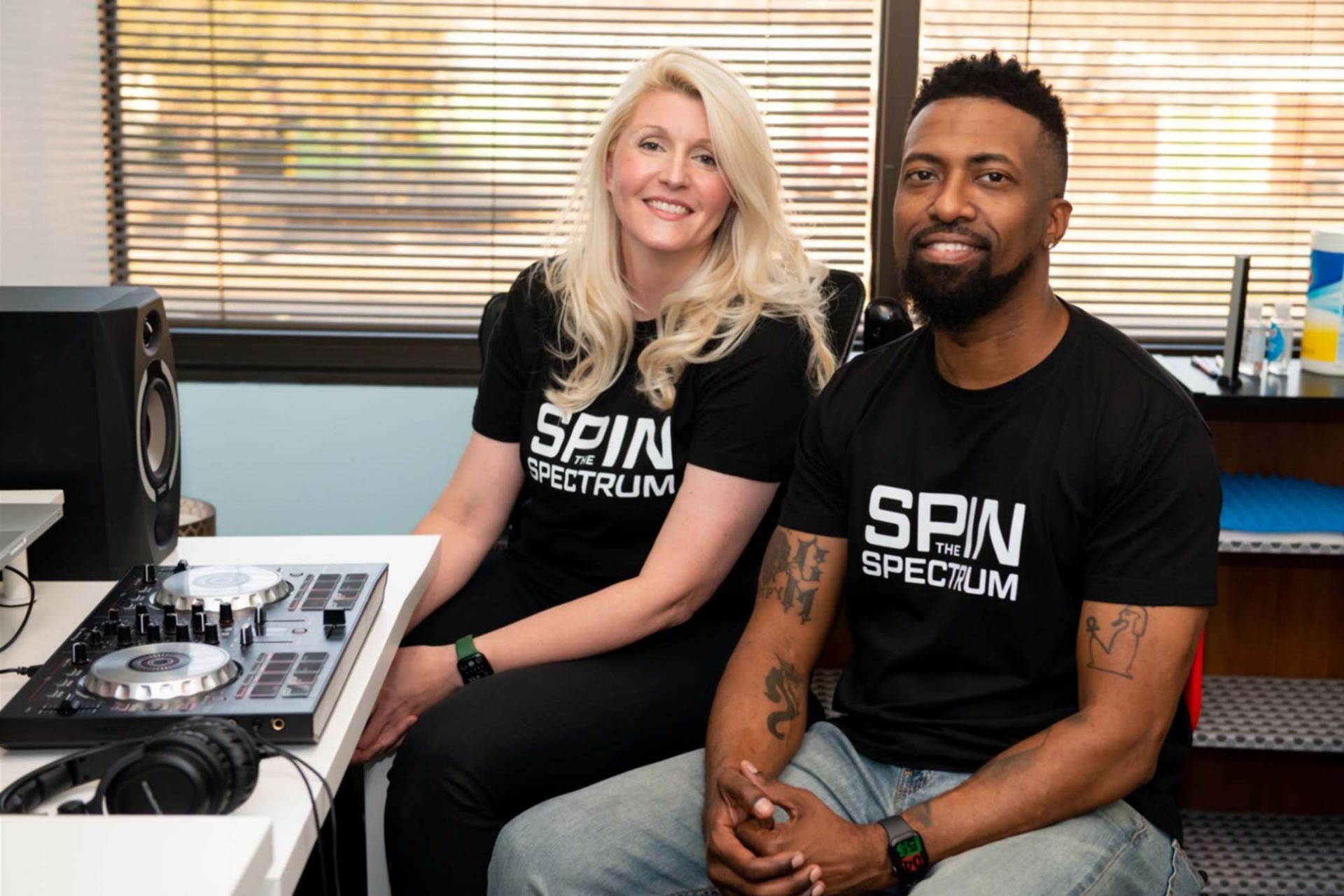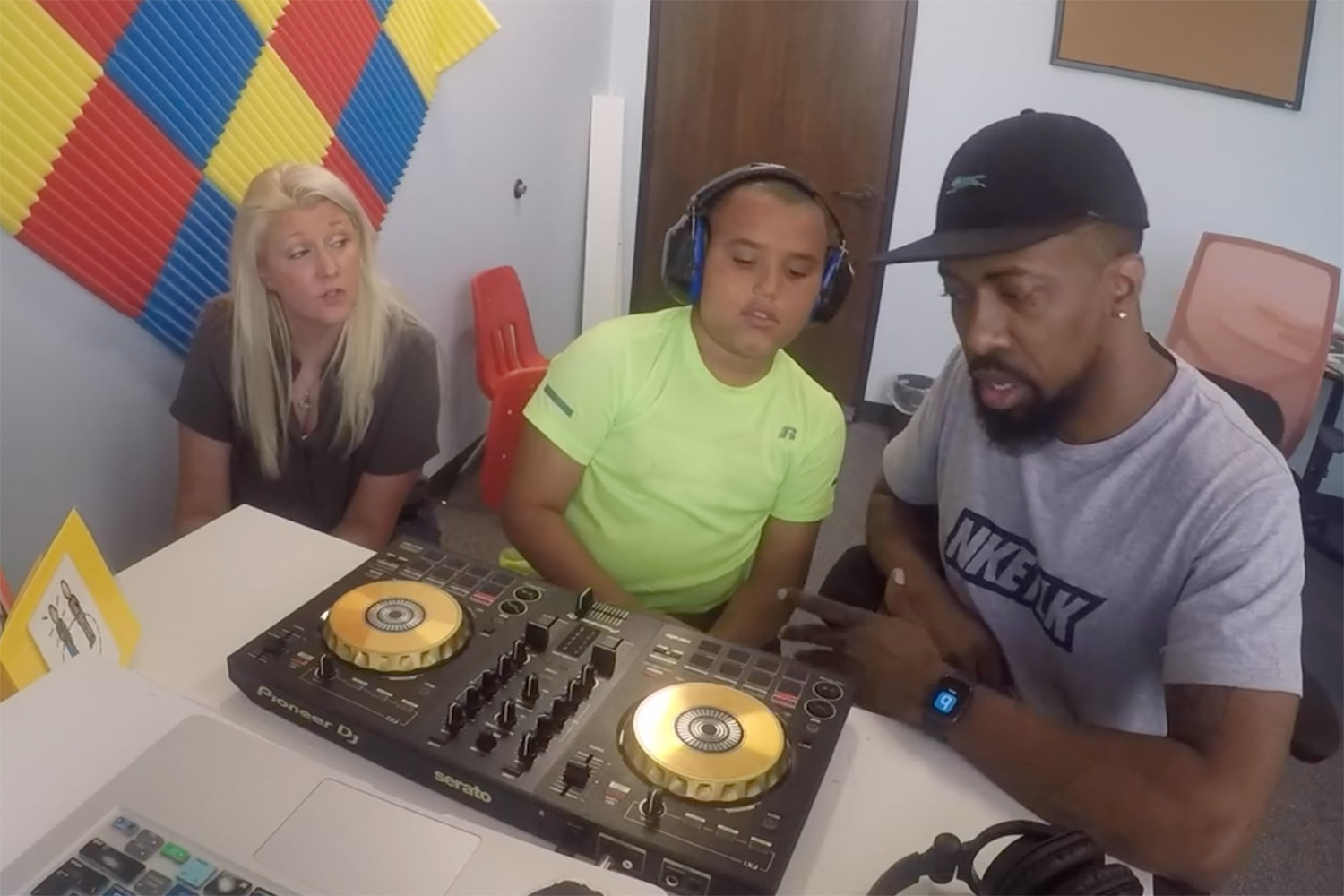
Courtney Willis BS’06, MS’12 is helping children with speech and language disorders find their voices and turn the tables on their communication challenges by teaching them how to be DJs.
Launched by Willis and DJ Jay Clipp in 2020, Spin the Spectrum is the only program of its kind in the country that helps children with communication disorders, including autism, express themselves and regulate their emotions through DJ education, she said.

“For kids on the autism spectrum, DJing is soothing, which is called emotional regulation,” said Willis, who graduated from The University of Texas at Dallas with a Bachelor of Science in speech-language pathology and audiology and a master’s degree in communication disorders through the Callier Center for Communication Disorders in the School of Behavioral and Brain Sciences.
“They experience the world from a sensory standpoint, and from a lot of different standpoints, in a very different way from you and me. If you’re a DJ, you’re in charge of your sensory environment, and you’re expressing yourself through technology. These are repetitive and soothing to someone with autism,” she said.
Willis approached Clipp, founder of Keep Spinning DJ Academy in the Dallas area and a longtime family friend, with the idea of starting Spin the Spectrum after watching a documentary about pioneering hip-hop DJ and rapper Grandmaster Flash.
“In the documentary he said that the reason he got into DJing was because he was never great socially and preferred working on technology to being around people,” she said. “And he said he liked repetitive noises over and over and over again. I’m not diagnosing Grandmaster Flash, but that made me think about people on the autism spectrum who might also fit that description.”
The partnership between Willis and Clipp combines his expertise in teaching the techniques behind DJ music mixing and production with her child-directed, evidence-based approach to speech and language therapy. She said there has been no research into the association between learning to DJ and improved speech and language skills for children on the autism spectrum, but she would like to see that change because of what she has experienced with students.
That has included one student whose reading comprehension advanced two grade levels in 2½ weeks. “And, we have a kid with a developmental delay in hand-eye coordination, and he is now within normal limits after doing DJ school for six months,” Willis said.
“If you’re a DJ, you’re in charge of your sensory environment, and you’re expressing yourself through technology. These are repetitive and soothing to someone with autism.”
Courtney Willis BS’06, MS’12
Spin the Spectrum is also becoming a potential place to train people on the autism spectrum who want to work in music production and entertainment. Willis said one student was hired as a DJ for events in North Texas.
Willis and Clipp are considering ways to expand the Spin the Spectrum program and make it available and more accessible to children around the country. When asked for her favorite part of the job, she said it’s that she gets to be her patients’ very first friend.
“When a kid has a communication disorder, when they can’t communicate with the people around them, it’s really hard for them to have that first friend. I get to be that friend,” said Willis, who also founded the Dallas-based clinic Speech Wings Therapy in 2015. She adopted the clinic’s name from Helen Keller, who described her inability to communicate early in life as having speech wings that were weak and broken.
“My approach to working with kids is that they don’t need to be repaired; they’re not broken. But if their ability to communicate, if their speech wings are weak or broken and have lost all their grace and beauty, then we want to help them soar,” Willis said.
